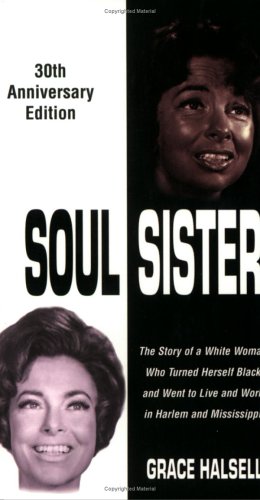White Womanhood RevisedPosted in Articles, History, Literary/Artistic Criticism, Media Archive, Passing, United States on 2015-06-16 02:08Z by Steven |
Avidly: A Los Angeles Review of Books Channel
2015-06-15
Brigitte Fielder, Assistant Professor of Comparative Literature
University of Wisconsin, Madison
Whatever else we might say about it, let’s not forget this: Rachel Dolezal’s story is a decidedly American one. Here, I refer not only to story of Dolezal’s racial passing, but also to how Dolezal’s story triggers and reveals America’s racial fascinations. Whatever Dolezal’s motives or ethics, our scrutiny of Dolezal’s race echoes a long history of parsing race in the United States more generally.
Much of the conversation about Dolezal proceeds within long-standing US assumptions about how race “works”: if her biological parents are “really” white people, then so is she, and therefore she cannot be black. While Dolezal is a member of an interracial family, she seems to have no mixed-race African American genealogy, and this is the single deciding factor about her own race. In effect, these assumptions tell us that there is no way for a woman who was born white (i.e., to white parents) to become black. For her to claim blackness, then, is a conscious act of deception.
But for all the clarity these assumptions provide, they are not the only American story about race and womanhood. Even as Americans want race to be simple and essentialist, American racial ideologies rarely allows it to be. Race, Dolezal’s story reminds us, is connected to the history of racial justice work and interracial collaboration, and complicated by relations of power and privilege. Her story also reminds us how race is connected to not only biological relationships, but also to social relationships. For a scholar of race and nineteenth-century literature like myself, Dolezal’s complex (and confusing) story calls to mind other stories of white womanhood revised.
Consider how Dolezal’s American Story aligns with this fictional one: Kate Chopin’s 1893 short story, “Désirée’s Baby.” In the story, Désirée, a woman of unknown parentage, is adopted into a respectable white family and marries the wealthy son of slaveholders, Armand Aubigny. When Désirée and Armand’’s baby begins to show signs of being mixed-race, Armand argues that, because the baby does not look white, it is not white. The appearance of Désirée’s baby calls Désirée’s race into question…
Read the entire article here.


